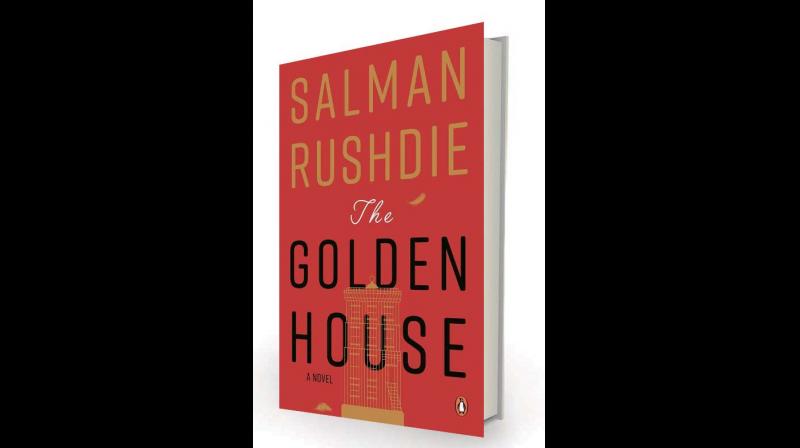Book Review 'The Golden House: A real vision of America'
The Goldens are Nero, a Gatsbyish businessman whose past and business interests are murky.

Life has far more imagination than we do, says the epigraph from Truffaut that opens Salman Rushdie’s 12th novel — as though, these days, anyone needed reminding. Set in New York and running between the start of the Obama administration and the rise of Trump, this book about gangsterism, art, dynastic ambition, secret identities and the tragedy of plan-making charts the descent of America into satire-killing oddity and social danger as it follows the lives of the Goldens, a family of larger-than-life Indian squillionaires who come to live in Manhattan in the wake of the 2008 Bombay terror attacks.
The Goldens are Nero, a Gatsbyish businessman whose past and business interests are murky, and his sons Petronius (Petya), Apuleius (Apu) and Dionysus (D). Not their real names, naturally. “Say we are from nowhere or anywhere or somewhere”, says Nero when someone questions his origins, “we are make-believe people, frauds, reinventions, shapeshifters, which is to say, Americans”.
Shacked up in a mansion on Mac-Dougal St in Greenwich Village, they throw themselves vigorously into the self-inventions of their adopted country. Petya, a high-functioning autistic agoraphobe with a martini habit, becomes a world-famous designer of videogames. Apu becomes an artist and playboy. D becomes a woman. Observing them all — as well as the skilful machinations of Nero’s new Russian wife — is René Unterlinden, an aspirant filmmaker who lives nearby and narrates the book, convinced that the lives of the family should be the subject of his first feature. After all, a “golden story”, as he knowingly observes, was to the ancient Romans something that was “obviously untrue. A fairy tale. A lie”.
Longstanding readers will recognise the initial tone here; elaborate, discursive, self-referential and buzzing with allusion to films, songs, books, politics, kitchen sinks. “My preferred manner would be something I privately called Operatic Realism, my subject the conflict between the Self and the Other”, explains René, half in auto-send-up and half in deadly earnest. Gravity takes hold of this airy prose, however, as Rushdie’s narrative approaches the Clinton-Trump race, which he envisages as a contest between Batwoman and a green-haired, laughing maniac who just wants to watch the world burn.
The plot moves towards a serviceably tragic conclusion but, as the gap dwindles between René and his visibly pissed-off creator, there’s also an air of the author nailing his colours to the mast. René wonders: “How does one live among one’s fellow countrymen and countrywomen when you don’t know which of them is numbered among the 60-million-plus who brought the horror to power, when you can’t tell who should be counted among the 90-million-plus who shrugged and stayed home, or when your fellow Americans tell you that knowing things is élitist and they hate élites, and all you have ever had is your mind and you were brought up to believe in the loveliness of knowledge…?” It’s hardly subtle, of course, but this is Rushdie’s most urgent novel for years.

